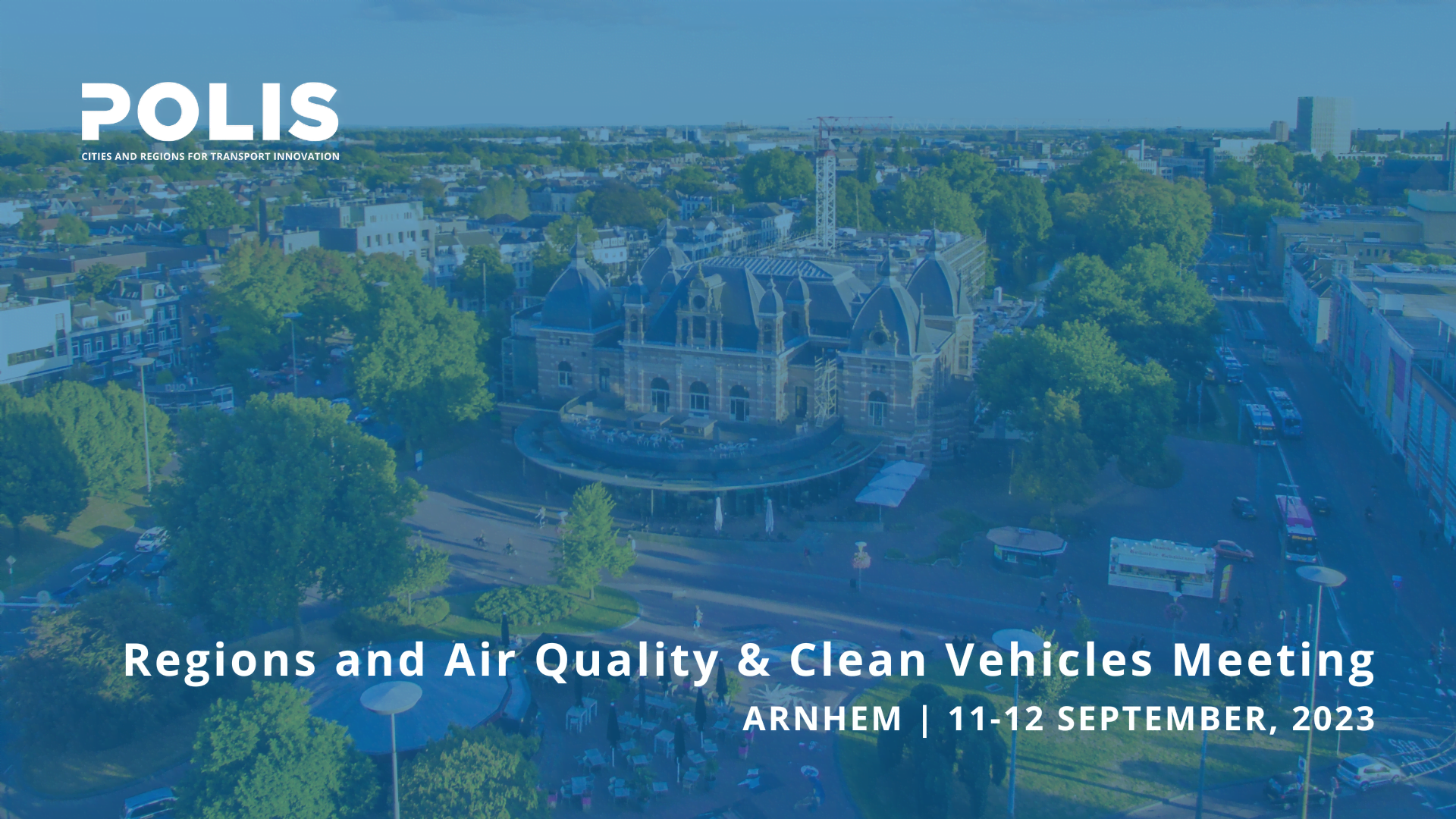POLIS welcomes the European Parliament's vote for stricter air quality standards
Last week, the European Parliament (EP) voted in favour of more stringent European air quality regulations. The proposed legislation would tighten the 2035 limits on air pollutants and harmonise air quality indices across the EU.
At a plenary session of the EP on 13 September 2023, the EP adopted its position on the revision of Europe's air quality legislation, with 363 MEPs voting in favour of the proposed changes. The new standards would lower the acceptable threshold for several air pollutants before 2035, thus ensuring a cleaner living environment and helping to protect the health of European citizens. The new legislation also includes provisions for better information about the health impacts of air pollution and would support improved monitoring, modelling and air quality plans so that local authorities can ensure cleaner air. Finally, it puts in place improved access to justice, penalties, and compensation for violating air quality rules.
Public enemy number one
In the EU, air pollution results in around 300,000 premature deaths per year. That makes it the leading environmental cause of early death in Europe. In particular, emissions from road transport account for an estimated public healthcare cost of more than 1,200 € per inhabitant.
In this context, significant reductions in emissions of toxic air pollutants are vital. Not only will they be necessary for the EU to achieve the European Green Deal’s Zero Pollution Action Plan, but they will also help to bring Europe's air quality standards in line with the 2021 recommendations of the World Health Organization (WHO).
But this comes as a huge challenge – in 2021, 97% of the urban population was exposed to concentrations of fine particulate matter above the health-based guideline level set by the WHO. For exactly this reason, Europe's cities and regions are asking for a more proactive EU response, including ambitious Euro 7 emission standards or a swift uptake of zero-emission road transport.
Not only NGOs are speaking out against the lax restrictions on air pollution: European citizens have been vocal about the impacts of air pollution and demanded lower emission thresholds to make urban environments greener and healthier. In response, the European Commission (EC) proposed a revision of the EU's ambient air quality standards in October 2022.
The fight for clean air continues
Pushing for a stricter 2035 limit instead of the 2030 proposed by the EC, the EP announced several positive changes to Europe's existing air quality legislation during its plenary session on 13 September. The proposed changes include:
- An increase in the minimum number of air quality sampling points required across the EU – at least one monitoring supersite per two million inhabitants, or one sampling point per one million inhabitants in areas with higher-than-average concentrations of key air pollutants such as ultrafine particles (UFP), black carbon, mercury and ammonia (NH3).
- A harmonisation of Europe's air quality indices to make them comparable, clear, and publically available, with hourly updates to ensure that citizens are well informed of when pollution levels peak.
- A requirement for public authorities to publish information about the symptoms and health risks associated with pollutants (including information addressed to vulnerable groups).
- A stronger right to compensation for citizens whose health is compromised as a result of non-compliance with new air quality standards.
- A requirement for all Member States to create air quality roadmaps indicating the short- and long-term measures that they will adopt to comply with the new limit values.
What lies ahead?
With the green light from the EP after its first reading, negotiations with the Council of the EU can now begin.
If you have any questions, do not hesitate to contact Ivo Cré (Director Policy & Projects - Coordinator Access) and/or Pedro Gomes (Project Manager - Coordinator Clean Vehicles & Air Quality Working Group) from POLIS Network.
Content adapted from the EP's 13 September press release. To learn more, take a look at the press release or visit the EP's Legislative Train Schedule.





